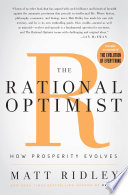Part 3
The Amazing Story of Human Progress: It's All About Sharing!
Imagine a world without pizza. Crazy, right? Now imagine a world without anything we take for granted – phones, cars, even comfy chairs! In his book, "The Rational Optimist," Matt Ridley shows us how we got from living in caves to having all these amazing things. It's not magic; it's all about *sharing*!
Ridley calls this sharing "exchange," and it's the secret ingredient to human progress. Think of it like building the biggest, coolest LEGO castle ever. If one person tries to build it alone, it'll take forever, and it probably won't be very good. But if a team works together, with one person building the towers, another the walls, and another the drawbridge, you get a magnificent castle, fast! That’s specialization and exchange in action.
This applies to everything we have today. Someone invented the wheel, then someone else figured out how to make better roads for those wheels, and then someone else invented the car to go on those roads. Each invention built upon the last, like adding more and more LEGO bricks to the castle. It's a chain reaction of sharing ideas and building on each other's work.
Ridley uses lots of examples to show how exchange works. Take the humble potato. It originally grew in South America, but then it was shared with Europe. Suddenly, people had a new food that could feed lots more people, leading to bigger populations and more people to share even more ideas! That's the power of exchange in action. It’s not just about sharing potatoes; it’s about sharing the *knowledge* of how to grow them and how to use them.
Another great example is the printing press. Before the printing press, books were copied by hand, making them expensive and rare. The printing press let people mass-produce books, spreading knowledge and ideas much faster. This led to the Renaissance, a time of amazing art and science, and then the Scientific Revolution, where science exploded with new discoveries. All this happened because of the sharing of information!
But sharing isn't just about physical things like potatoes and books; it's about sharing *ideas* too. Scientists share their discoveries, artists share their creations, teachers share their knowledge – all of this builds on what came before. It's like a giant snowball rolling down a hill, getting bigger and bigger as it picks up more snow (ideas).
Ridley also talks about how specialization makes us more efficient. Imagine a village where everyone tries to do everything – farming, building houses, making clothes. They’d be terrible at everything! But if people specialize – one person becomes a farmer, another a builder, another a tailor – they become experts in their field. Then they can *exchange* their goods and services. The farmer gets clothes, the builder gets food, and the tailor gets a house. Everyone benefits! This is called the "division of labor," and it's incredibly powerful.
But here's a crucial point: exchange requires *trust*. You won't trade your clothes for bread if you don't trust the farmer to give you the bread. This trust is built over time through strong laws, social interactions, and good institutions. A society with strong rules and trust will see much faster progress than one without. It's why we can buy things online – we trust the seller and the payment system.
Ridley even shows how seemingly bad things, like wars, can sometimes lead to progress. During wars, countries often share knowledge and technology with each other, even their enemies! This sharing can lead to unexpected advancements after the war is over. It's like a forced exchange of ideas, resulting in progress in the long run.
The book is full of these amazing stories – from the development of agriculture to the invention of the internet – showing how each step forward is built upon previous exchanges of goods, services, and ideas. It's a reminder that progress isn't just about luck or one brilliant person; it's about the incredible power of sharing and working together.
Lesson
The key lesson from "The Rational Optimist" is that human progress isn't about individual genius alone, but about the amazing power of *exchange* – sharing ideas, goods, and services. By specializing in different tasks and trading with each other, we build upon each other's knowledge and skills, creating a chain reaction of innovation and progress that leads to a better life for everyone. Trust is the glue that holds this whole process together.
